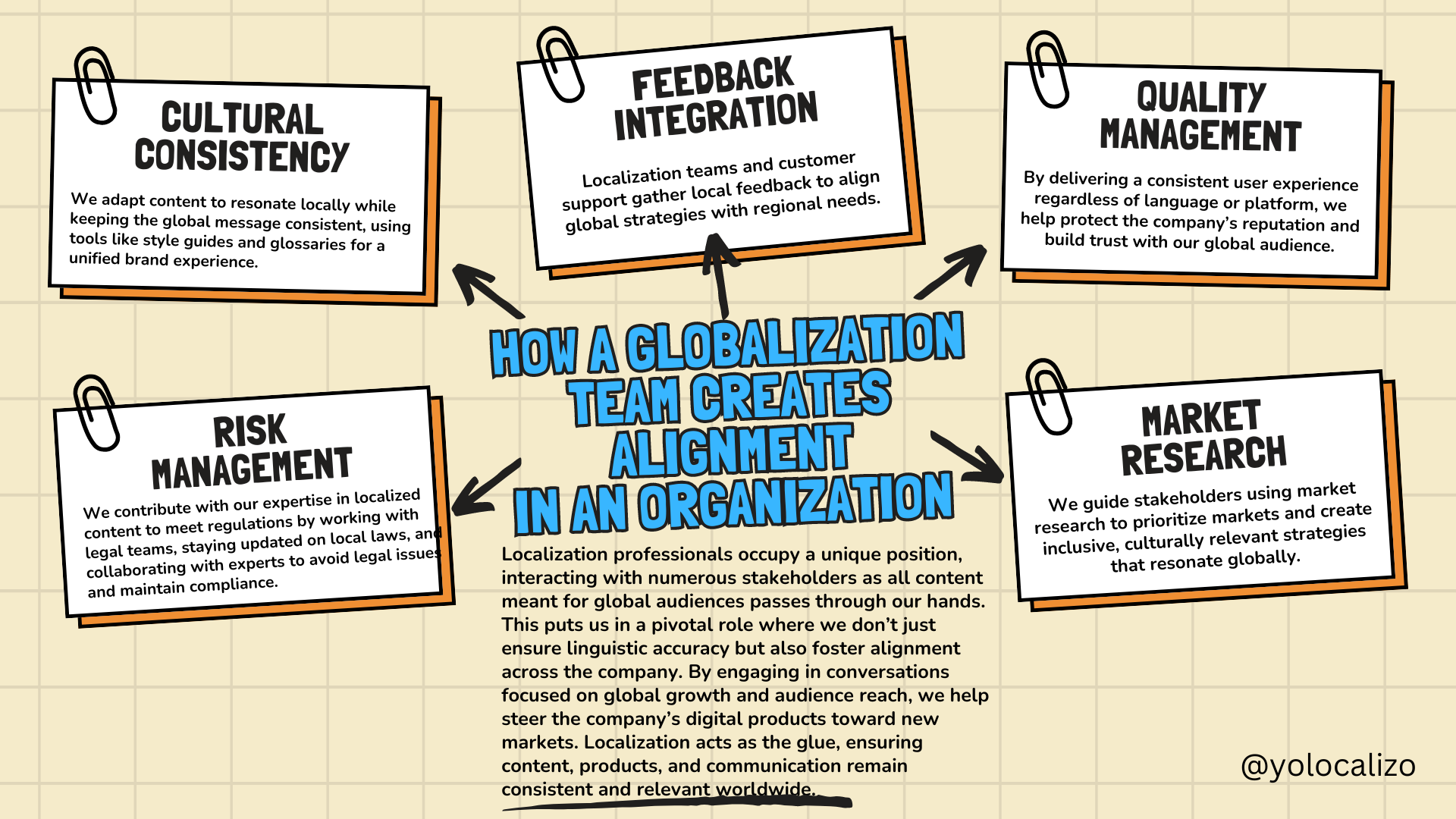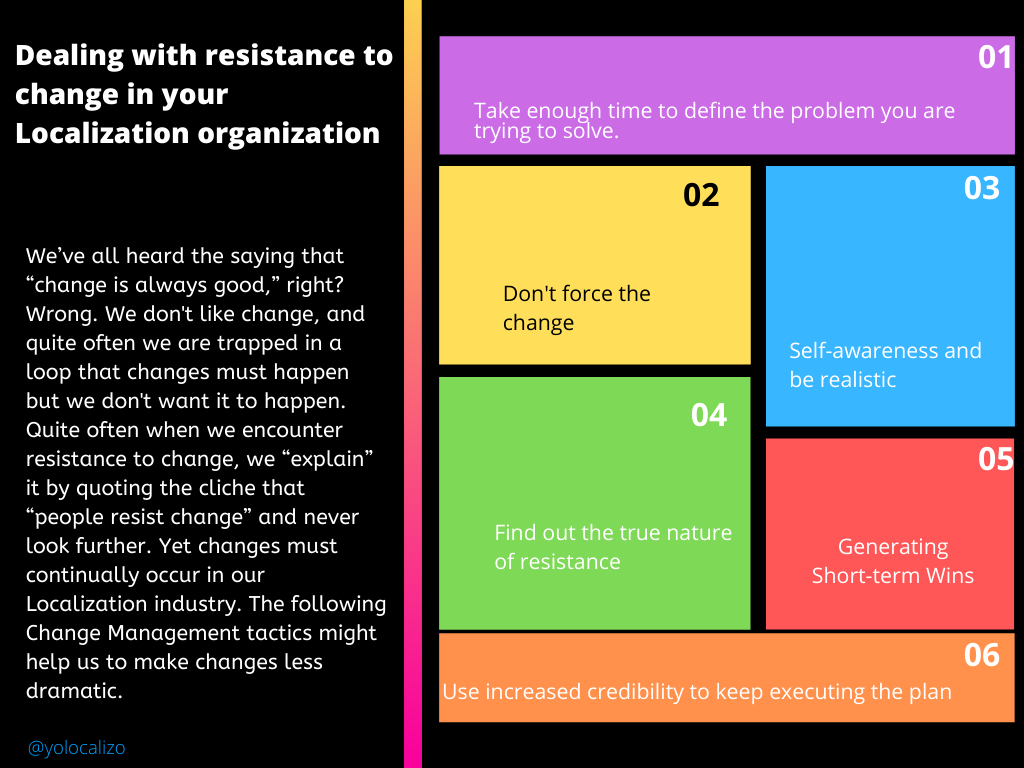A painful promotion to Localization Manager
(Estimated reading time: 14 minutes, if you don't have 14 minutes just have a look at the infographic 😃) Click HERE to download the infographic
There are some situations in life for which it is downright difficult to be prepared. Regardless of the number of books, articles or courses that we do.
One of those situations is being a father. When my son Gonzalo was born on December 21, on December 20, I was fully prepared to be the perfect father. I had done a course of preparation for childbirth, I had read several books and had reviewed countless articles and videos for 9 months. The night of the 20th I was fully prepared, and the night of December 22nd I was totally overwhelmed trying to change my first diaper, and hours later looking for the turnoff button baby crying! Being a father for the first time I see it similar to being a Manager for the very first time. There are situations in life that can only be learned by practicing and making mistakes. Being a parent is one of those situations, and being the rookie Localization Manager for the first time is another of those situations ...
There are many books that tell us how to lead teams, but there is very little information on how to be a Manager for the very first time. There are similarities between the first promotion to Localization Manager and being a first-time parent. In both situations, it is assumed that we know how to do the work ... but in reality, what nobody tells us is that we are not prepared to do a good job.
If we ask any first-time father about his experience of being a father, he will tell us how difficult it is to recover the balance in his life, how difficult it is to have time for themselves and how difficult it is to get a quality night sleep. ... In the case of a first-time Manager, we find that we have worked hard to have that promotion. And when the promotion comes, we face reality.
We are disoriented because those reasons why we shine as an individual contributor are not so useful in the new role. There's a gap between our current capabilities and the requirements of the new position.
When we are promoted the first time, we probably achieve it because of our technical knowledge in the Localization industry. But that knowledge will be less useful than we imagine in our shiny new role of Localization Manager. As Localization Specialist, we can flash by our knowledge of how to handle a glossary, how to align translation memories, or how to configure MemoQ to do pseudo localization ... but, will that be useful in my role as Localization Manager? Yes, partially, but not as important as learning to improve my skills related to emotional intelligence, how to give constructive feedback or my ability to speak in public.
Back on my early day, before my first promotion to Loc Manager, I remember that my knowledge of how to code macros in Excel, and my approach to Trados, MS Project and automation of test cases was quite good ... that knowledge helped me enormously to shine in one project, and then another and then another. ... and then I got the most painful promotion I remember ... because everything that made me strive it was not so useful in my new role.
In addition, when we are an individual contributor we are not used to making mistakes, we base our performance on technical knowledge and our mistakes rate is low, especially when compared to the first months that we are Localization Managers.
Being a Manager for the first time is very complicated, But I think the main reason why it's so complicated is that we have a lot of misconceptions about what it means to be the BOSS. My hope with this post is that talking about these misconceptions we can perhaps align myths and realities.
In this post I want to give some ideas to help that the clash with the real world is not as dramatic as it was in my case;
Here we go, let's talk about the misconceptions about what we expect to be our role as Manager vs. reality...
Fluffy Localization Manager ideal world vs the desolate reality
Misconception 1 Landscape sweet cotton clouds (Naive Localization Manager vision)
Now that I am Localization Manager I will have the freedom to choose the CAT tool I want and the ability to establish the Localization strategy that the company deserves to globalize our products and conquer the world market. Yay!
The raw reality -Misconception 1
I am new to the position, I am the new one in the company! My (formal) authority that comes from my role has no effect at the interdepartmental level or with the stakeholders. Why do not they listen to me? I am the Localization Manager, I know this industry well ... they should follow my advice ...
Possible solution: It is equally important to establish a good relationship with each of our members of the Localization team, such as establishing excellent relationships with the managers of the different divisions or teams. Investing time working with my direct reports is important.; But meeting with the head of marketing, and nurturing the relationship with him/her to have their support in the campaign that I am globalizing is equally important. During my first years as Localization Manager, I did not pay enough attention to this aspect. My focus was on developing my team of localizers, and of course, that is important ... but not paying attention to interdepartmental relationships represents a very high risk.
Misconception 2 Landscape sweet cotton clouds (Naive Localization Manager vision)
Now that I am the Localization Manager, my Test Leads and Testers will do what I tell them and they will implement this new tool to capture screenshots; automate LQA will be a piece of cake.
The harsh reality - Misconception 2
Discovering that your team does not necessarily do what you tell them is quite shocking the first time it happens. The more brilliant and talented one of our direct reports is, the more risk there is that he does not do what I say simply because I am the Localization Manager. Rarely really intelligent and skilled people will do what they are told, especially medium term. They want to be heard ... what it cost me to understand this ... oops! This is related, I think ... to the micromanager syndrome ... I needed to control every member who reported to me. As I was new to the job I had to retain all the power; and I had control everything and being aware of everything and say how things should be done. But the reality is that Compliance does not equal commitment.
Possible solution
Formal authority does not work long term, it's just a temporary victory. We're just "making time". The worst thing about micromanagement and telling people continuously what to do is that it eliminates creativity, and that is the most valuable asset we have today. 10 brains are going to get more than just the brain of the manager. Let's finish with the myth of micromanagement as a tool to controlLet's trust more in our ability to empower employees to achieve team-goals instead of ordering them. Formal authority interacting with knowledge workers does not work. Establishing authority through empowerment it does work
Misconception 3 Cloudy landscape ... non-fluffy Manager of the Localization Manager vs The Wary Localization Manager
If I have doubts about how to do something and ask my boss, She/he will think that I have no idea, that I am weak and that he/she has probably made a mistake in promoting me. Better I'll find my own way to look solution alone before dare to show me vulnerable in front of my boss.
Possible solution
In general, or at least what I have observed in my professional career, my managers are not monsters, they are not monsters waiting for me to ask an innocent question to laugh at my face, on the contrary, in most cases they want to help us to do a good job, because their success and the success of the company also depends on our success. So if we have doubts they will help us. Now, there are ways and ways to show our doubts. For me, the best strategy I found to find feedback from my manager is to present solutions and ask him his opinion.
Between going to my manager and telling him that I do not know what is better if developing a Content Management System from scratch or buying a commercial solution ... to go and tell him, I have analyzed the advantages and disadvantages of developing a CMS internally vs buying an external solution. I have prepared this summary and a SWOT. I would like to know your opinion and please guide me according to your point of view. What do you think would fit better with the overall strategy of the company? This proactive approach is useful.
Landscape 4 The myopia of the new kid on the block manager
Perhaps one of the big problems when we get our promotion to Localization Manager it is that we are still very involved with the production, we want to know how the templates go to in order to handle glossaries or we check the linguistic bugs that are arriving. It's normal we've been doing that for years, we're good at it, and we're also productive in firefighter mode ...
Possible solution
Devoting time to Localization strategic thinking is probably more important than solving problems of the day ... It is important to book a time in our calendar and dedicate it to thinking strategically. how can we do it? What I do is using productivity time-boxing techniques combined with asking me questions like "What localization trends am I seeing in the next 6-12 months that it might change the way we work? Focusing on the big pictures is more important than immediate tasks.
In short, being the boss for the first time is a long and tortuous road, but it is also very satisfying as we grow every week... Many times we do not realize that we are growing since we are growing based on making mistakes ... but looking in perspective is the only way to grow. When my second child was born 4 years later, I did not spend all night looking for the button to stop crying, I had already accumulated 4 years of resilience and experience on how to be a parent ... exactly the same thing that happened to me the second time I had a promotion to lead a localization team 4 times bigger than the first team that I learned so much from ...
Becoming a boss is difficult, but it's worth it, my hope is that paying attention to these 4 ideas developed in this post, the path will be less painful. Misconceptions vs reality are the key ...
Have a great week everyone and good luck with your endeavors!














This post explores the key differences between working on the buyer versus the provider side of the localization industry. While there are some tasks common to both, others vary significantly in areas such as people management, operations, strategy, and metrics. The article breaks these tasks into four categories, providing examples for each to highlight these distinctions